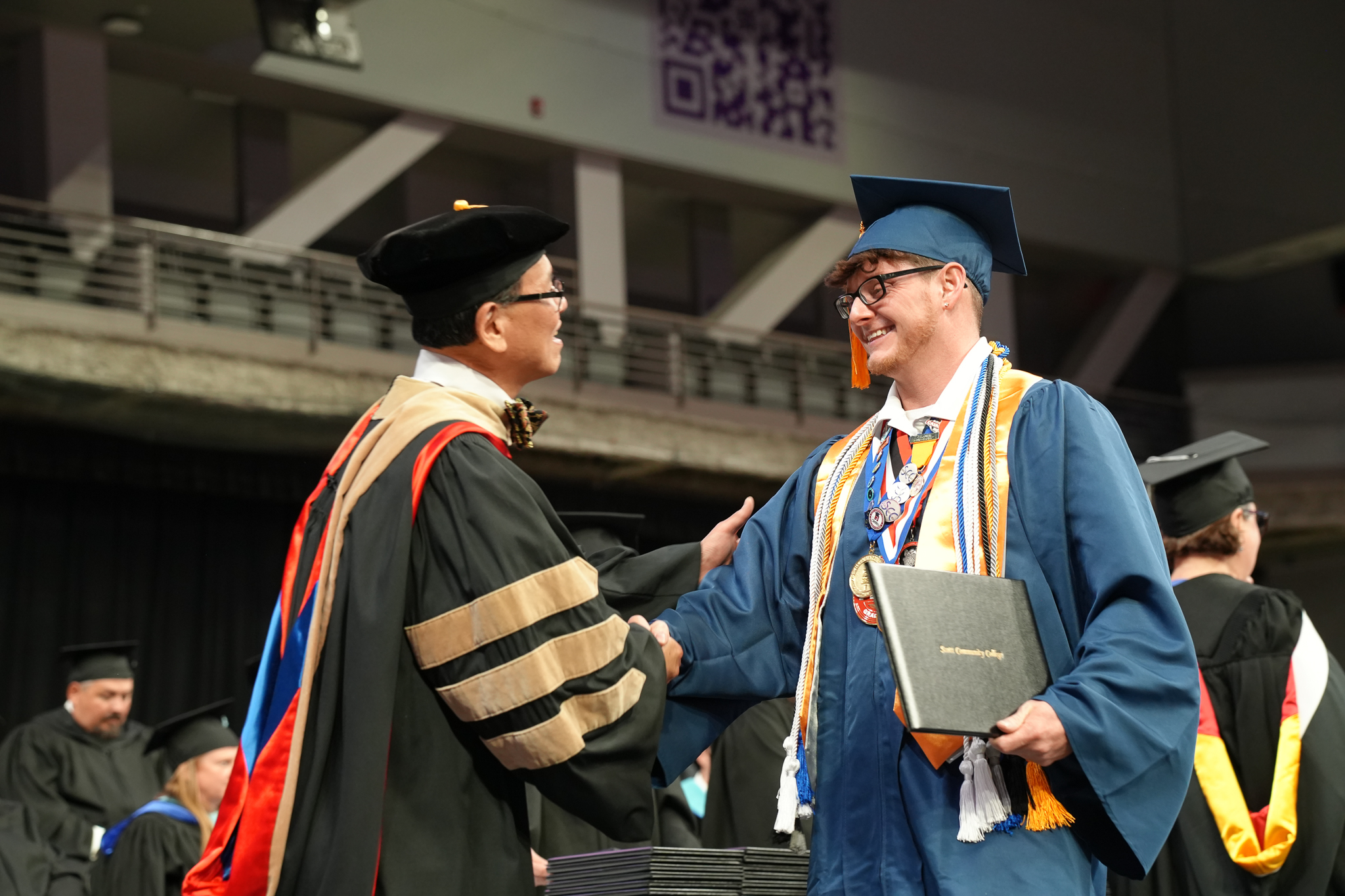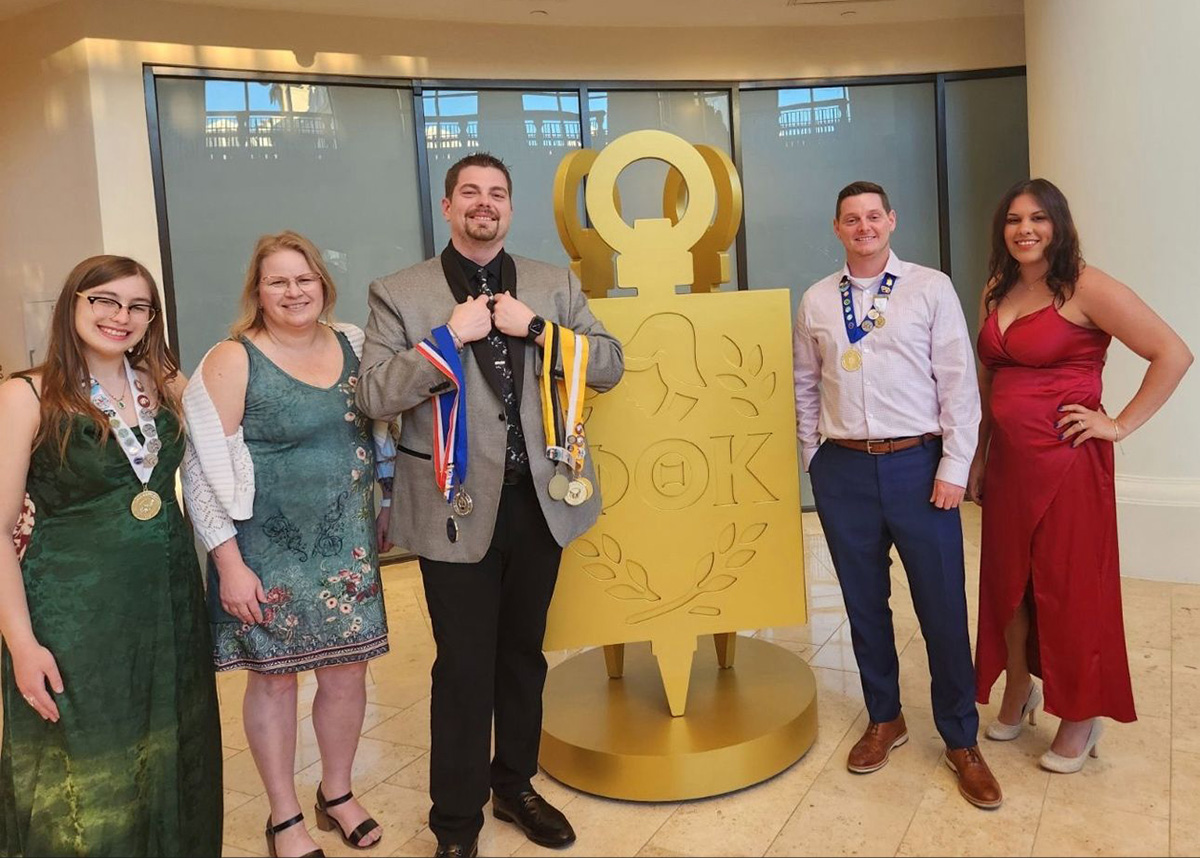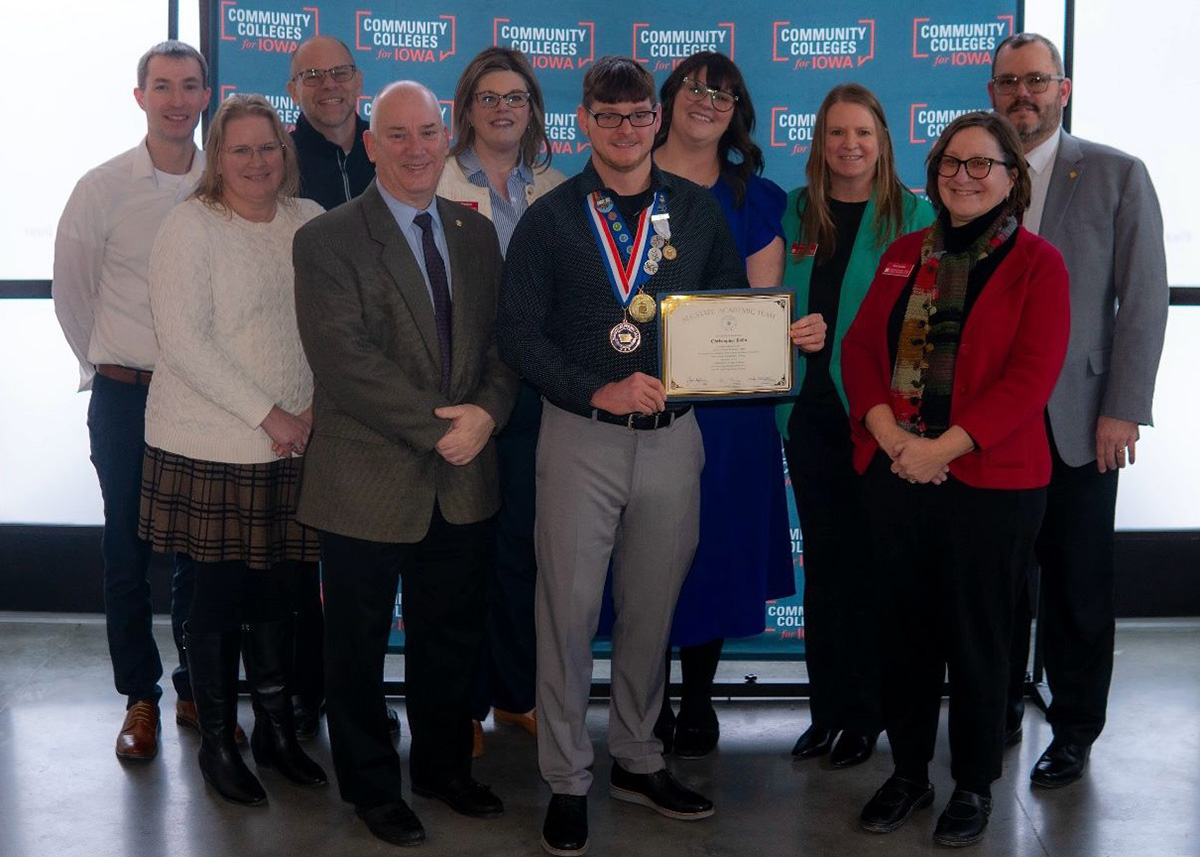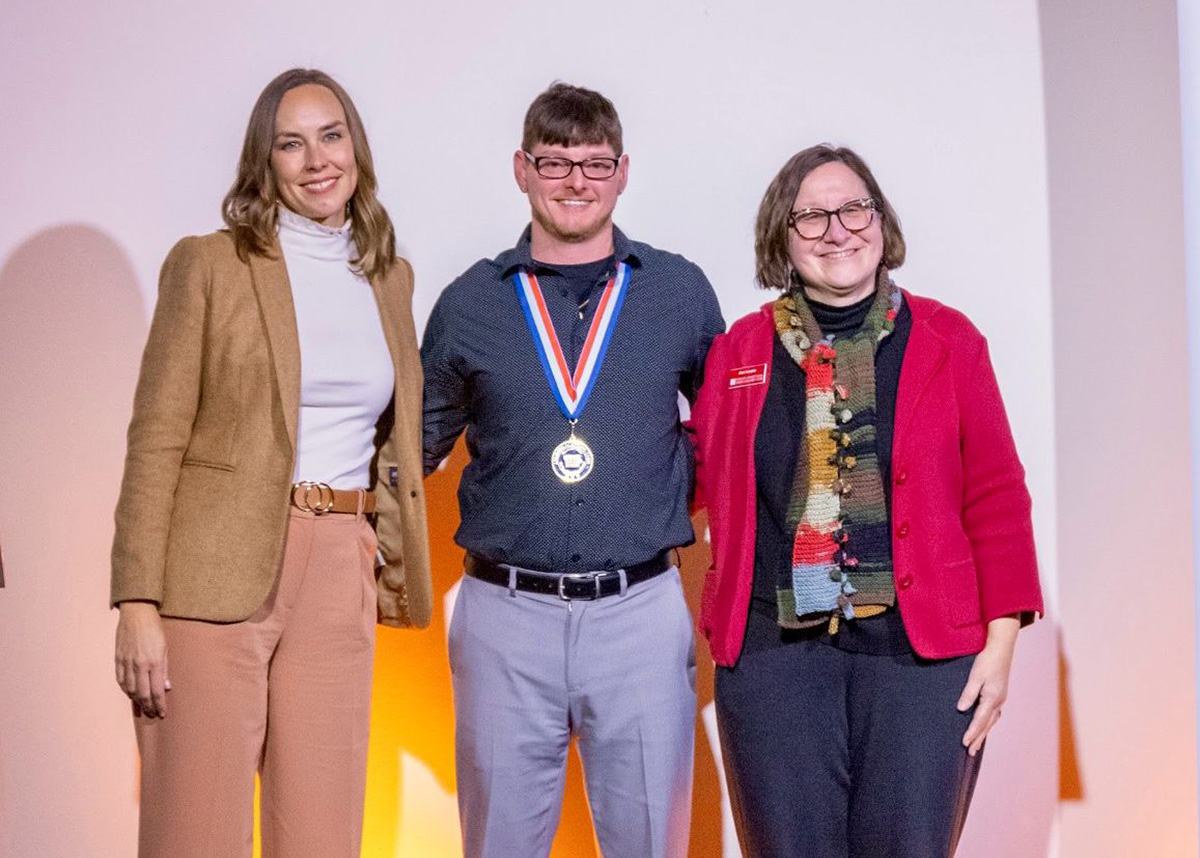Christopher Bolin isn’t the kind of student you forget. On paper, he’s a recent graduate of Eastern Iowa Community Colleges (EICC), holding an Associate in Science (AS) in Physics and an Associate in Applied Science (AAS) in Engineering Technology. He served as president of the Phi Theta Kappa Honor Society, founded a peer-to-peer SMART Recovery support group, and juggled multiple jobs while acing calculus and physics. But none of those bullet points capture the full picture.
The real story starts long before the diploma.
"Tired of Being Tired"
Years ago, Bolin was spiraling. His addiction had grown severe, and life had narrowed to a cycle of survival.
"I literally did not want to live," he said. "I hated every aspect of my life. But the only thing I knew to do was drink and use. Eventually, that stopped masking it. Even when I was drunk or high, I was still down."
His descent began after the death of his grandfather. An enormous loss to him and his family.
"Me and my grandpa were very close. He passed during my first stint in college, and that’s kind of when I would say my life spiraled out the most."
There were days he couldn’t remember. Five-day stretches wiped from memory. His mother and grandmother came to his house every day just to make sure he was alive.
Then came the phone call.
"I just woke up one morning, and I was tired of being tired. I called my mom and said, 'I need help. I'm ready.' She was at my house in five minutes. She’d been waiting for those words for years."
Bolin entered rehab in Milan, Illinois—not the beachside facility he once envisioned, but a lifeline nonetheless. The timing aligned perfectly. Originally told he’d have to wait a month, he got a call the very next day: if he could get there immediately, they’d take him in.
From that moment, everything began to shift.
A New Direction
After treatment, Bolin relocated to the Quad Cities and enrolled at Scott Community College (SCC). Originally, he started with the Engineering Technology program at SCC’s Blong Technology Center, inspired in part by memories of his grandfather, a Navy electrician.
"I wanted to learn about electricity and see if it was something I liked," he said. "Pretty soon, I realized, I loved it. I was sending videos of my projects to my mom and brother. It was exciting to build something and see it work."
But as he looked at future job opportunities, something felt off. The technical path didn’t align with what he envisioned. That’s when he pivoted—to physics, and eventually, a transfer plan in electrical engineering.
It wasn’t easy. Some of the math concepts hadn’t crossed his path in twenty years. "You don’t use sine, cosine, and tangent when you’re working in retail," he said with a laugh.

Still, with determination and support from SCC’s TRIO Support Services and instructors like Ms. Bhaswati Gangopadhyay, he pushed through.
"I never thought I was smart. I always thought I could work hard, but not that I was intelligent. However, I realized I just hadn’t put this kind of effort into learning before. I found I actually really enjoyed it. And, I'm really good at it."
Building Community
Bolin didn’t just take from his college experience. He gave back. He joined Phi Theta Kappa and quickly became a student leader on campus.
"PTK gave me a sense of belonging. I met lifelong friends there. When we went to PTK Catalyst down in Orlando, Florida, it really hit me. I noticed not everybody was 19 or 20. There were people there my age, maybe even older. That’s when I realized I was actually proud of what I was doing."
His PTK Honors in Action project led him to create a SMART Recovery support group on campus, designed to help students struggling with addiction.
"When we started looking at services offered here at the college, we do offer a lot of professional help, but we didn't really have any peer-to-peer help," he explained.
"So I thought, what if we created something where, if someone was struggling, they could talk to a peer who's actually lived through it—someone who could say, 'I've been where you are, and here's what helped me.' Not just advice from a book, but a real, lived experience they could relate to."
And it worked.
"It helps keep me sober. By sharing my experience and reminding myself where I was, it gives me perspective."
He also worked two part-time jobs while balancing school work and extracurricular activities. Weekends were packed, but he never let go of his academic goals.
"I had to ask myself, is this part-time job my future, or is school? I chose to invest in my future."
Eyes on the Horizon
Today, Bolin is preparing to attend the Milwaukee School of Engineering with a focus in electrical engineering. It's a move that would've seemed impossible just a few years ago.
"When I was 19, I didn’t think I’d make it to 21," he said. "I really didn’t want to. I was just in that mindset, or I had that dark of a life. You know, getting sober, it's obviously changed my life, but education has given me a future."
He’s not entirely sure where the road leads, but he’s clear about one thing: he wants to use his experience to help others, particularly younger people facing similar struggles.
"I've really enjoyed being involved in this community. It's something I never did in the past. I've always been career-focused. But now, I’ve had conversations with community leaders, and it’s cool to see how you can have that professional side and still make a change in your community."
He’s especially passionate about reaching young people navigating addiction.
"If I can share my story with someone who's 19 or 20, maybe they can avoid all the pain and suffering I went through. If someone hears my story and it saves them years of pain, that’s everything to me."
Full Circle
As he packed for Milwaukee, Bolin reflected on how far he's come.
"Three years ago, I couldn’t even leave my house. Now I’m heading to the Milwaukee School of Engineering. That’s a future I never imagined back then."
He just celebrated his three-year sobriety anniversary, too. A milestone that grounds everything he’s accomplished during his time at EICC.
He knows he’ll miss it. The TRIO office. The instructors who became mentors. The students who became friends. But he leaves with more than two degrees. He leaves with confidence. With purpose.
And with a blueprint for what comes next.




